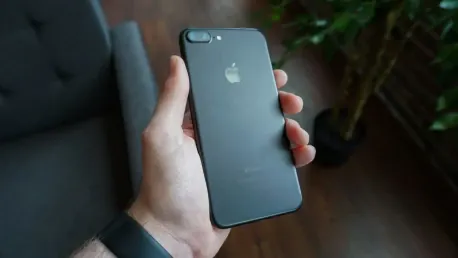Apple is on the verge of introducing the iPhone 17 Air, a new addition that has sparked immense speculation about its potential success or failure in the tech world. The iPhone 17 Air is expected to be a slimmer alternative, designed to replace the current Plus variant, and it’s rumored to embody certain features that echo the popular MacBook Air strategy. This approach caters to individuals who prefer a mid-tier device without the necessity for the highest-end specifications. While this strategy has proven successful for Apple’s MacBook Air and iPad Air, industry expert Mark Gurman from Bloomberg remains skeptical about its efficacy when applied to iPhones. Gurman notes that previous attempts, such as the iPhone mini and the Plus model, haven’t met with widespread approval, raising questions about the iPhone 17 Air’s awaited reception. However, amidst the skepticism, some believe that the anticipated foldable iPhone, projected to debut as early as 2026, could finally realize Apple’s ambitions of revolutionizing the market with an entirely new format.
Expected Specifications and Criticisms
The iPhone 17 Air is anticipated to feature notable specifications. Among these are the powerful A19 chip and a screen embracing the Dynamic Island feature paired with a 120Hz refresh rate. Yet, despite these promising aspects, the device is expected to compromise in other critical areas, particularly the camera system. Speculations suggest that the iPhone 17 Air may house only a single rear camera, which starkly contrasts with the high-performing and multi-camera systems featured in other iPhones. Given that iPhones have built a substantial reputation for their exceptional camera quality over the years, this potential reduction in camera capabilities could significantly impact consumer interest and satisfaction.
Many users turn to iPhones for their superior photography and videography experiences, and a single camera system might not live up to these high expectations. This possible drawback could set the iPhone 17 Air up for failure as it might not meet the benchmarks set by its predecessors. Apple’s challenge, therefore, is to balance new features and design elements while maintaining the core aspects that users cherish, like high-quality camera performance. Despite the anticipated enhancement in processing power and display technology, there’s a marked concern that these improvements alone may not suffice to ensure the iPhone 17 Air’s success in a market that heavily emphasizes camera proficiency.
Market Reception and Future Strategies
Apple is gearing up to launch the iPhone 17 Air, a new model creating significant buzz regarding its potential impact on the tech market. The iPhone 17 Air is expected to be a thinner version, designed to replace the existing Plus variant. It is rumored to incorporate elements reminiscent of the successful MacBook Air approach, appealing to those who want a mid-tier device without needing top-of-the-line specs. This strategy has worked well for Apple’s MacBook Air and iPad Air models. However, Bloomberg’s Mark Gurman expresses doubts about how well this will translate to iPhones. Gurman points out that prior attempts like the iPhone mini and Plus model did not achieve broad acceptance, casting uncertainty on the iPhone 17 Air’s future reception. Despite skepticism, there is optimism surrounding the possibility of a foldable iPhone. Some anticipate that such a device, potentially launching as early as 2026, could finally fulfill Apple’s goal of reshaping the market with an innovative new form factor.









